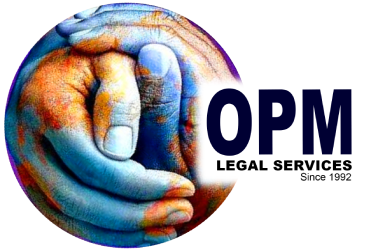
Residence and Living in Panama
24/05/2023
Which banks make KTT wire transfers?
04/06/2023
Tax havens are used to pay less tax but have their own function in the global economy
The concept of tax havens is complex and difficult to define uniquely. Countries where taxes are lower are often called tax havens. However, this definition is too general and imprecise. The origin of the term “tax haven” comes from the English “tax haven,” but over time it has been adopted in many non-Anglo-Saxon countries, acquiring a broader and “folkloric” meaning.
There is no clear and unambiguous definition of the concept of tax havens. Even the OECD admits that it is impossible to provide a precise definition. Therefore, various authors prefer to use the term “privileged tax countries” to avoid bias when analyzing such phenomena.
Doctrinal definitions of tax havens are diverse and sometimes redundant, making them difficult for the layman to understand. However, the most common distinguishing feature of tax havens is the absence or significant reduction of taxation. However, there are countries with low tax rates that cannot be considered tax havens. In addition, the use of the term “offshore” is often associated with tax havens, describing exotic places where one can keep one’s wealth anonymously and inaccessibly.
There are also several “additional” definitions of tax havens, such as financial havens, where facilitated financial and currency transactions occur, and corporate havens, where it is possible to form corporations without restrictions. In addition, there are regulatory havens, where legal and economic rules are few and difficult to enforce.
Bank secrecy is still a primary feature of tax havens, despite international efforts to combat it. It is an aspect that ensures confidentiality for clients even in seemingly trustworthy states. In addition, the evolution of international conventions and rules has led to the use of other definitions such as “non-cooperative countries.” Therefore, the concept of tax havens is elusive and complex.
Different concepts of tax havens
Traditional definitions are broad and general, while additional definitions highlight different facets of the phenomenon.
A more inclusive definition might be “regulatory havens,” which includes countries where rules are poorly enforced. However, it is also important to consider the political aspects related to the phenomenon and the various international efforts to counter it.
Importantly, definitions of tax havens can vary depending on the context and perspectives of those using them. International and national organizations publish lists of countries considered tax havens, but there are often discrepancies and debates about the validity of such lists.
Measures to combat tax havens have been the subject of numerous regulatory interventions at the international, European and national levels in each country. The rules and criteria for identifying tax havens are becoming increasingly stringent, and the European Union is promoting reforms to improve the effectiveness of listing mechanisms and combat tax avoidance.
It is also important to consider the political and economic aspect related to tax havens. In order to attack tax havens that are nothing more than competitors with better prices, they accuse these countries, of fostering corruption, money laundering and terrorist financing.
Therefore, efforts to counter tax havens are also based on supranational measures to prevent and crack down on such crimes.
How to classify tax havens
Traditional definitions are broad and general, while additional definitions highlight different characteristics of tax havens. To understand why tax havens die hard, it is important to consider the regulatory, political, and economic aspects associated with them.
Tax havens can be classified into different categories based on their tax characteristics and practices. The following are some common types of tax havens:
- Zero-tax tax havens: These are countries where no income or corporate taxes are levied. They offer an extremely favorable tax environment with no or significantly reduced taxes.
- Low-tax tax havens: This category includes countries that charge very low tax rates compared to the international average. Although they do not necessarily have zero taxation, their taxes are generally lower than in other countries.
- Offshore tax havens: These are countries or jurisdictions that offer financial and tax advantages to foreign individuals and companies. They are often characterized by strong bank secrecy protection, the ability to form companies with minimal capital, and the facilitation of financial and currency transactions.
- Financial tax havens: This category includes jurisdictions that provide high-level financial services with a wide range of financial instruments and investment opportunities. They offer advantages such as anonymity, asset protection, and favorable taxation on investment income.
- Regulatory tax havens: These are countries or jurisdictions with lax regulatory regimes that allow tax avoidance and evasion. They often have weak or inconsistent enforcement of tax, corporate and AML regulations, creating a favorable environment for opaque and poorly regulated financial activities.
Top tax havens
It is important to note that many tax havens may fall into more than one category and that tax practices may vary over time.
In addition, some countries may not be considered tax havens in the strict sense, but may still offer significant tax advantages. The classification of tax havens is a complex topic and subject to debate, as definitions and practices vary from source to source.
According to attorney Giovanni Caporaso Gottlieb, currently, the top tax havens are:
- Panama
- Nevis
- Serbia
- Poland
- United States
Each of these countries offers definite advantages. Often, in order to minimize taxation (even to zero), it is necessary to use a structure that crosses several countries. However, it is good to remember that, at present, the country where the final beneficiary resides is of utmost importance.




